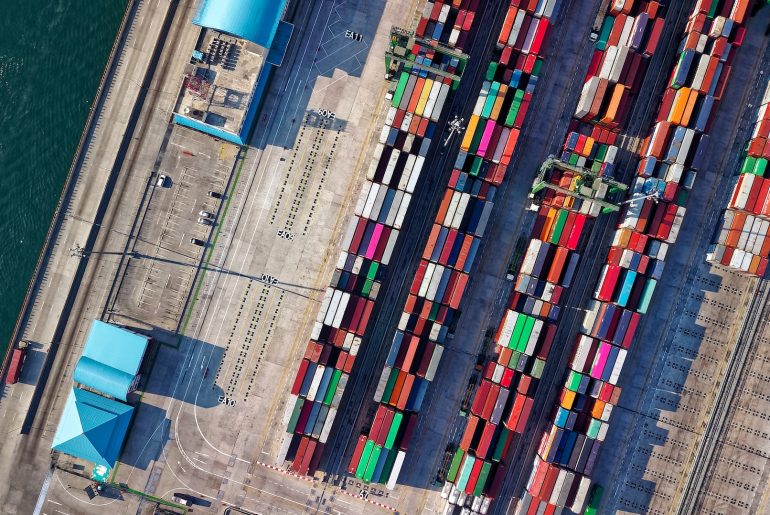This article may contain references to products or services from one or more of our advertisers or partners. We may receive compensation when you click on links to those products or services. Nonetheless, our opinions are our own.
Supply Chain Management is a crucial function in any organization as it encompasses the planning, coordination, and control of the flow of goods and services. Supply chain management is essential for every firm since it covers all facets, including manufacturing, shipping, and distribution.
Experts in Supply Chain Management are in great demand as businesses seek to streamline their processes and save expenses. The need for effective supply chain management has never been higher than now as the global economy becomes more integrated.
Supply Chain Management graduates are well-equipped to fill these positions because of their comprehensive knowledge of the supply chain and its interdependent parts.
This article will explore the career paths available to individuals with a degree in Supply Chain Management. From purchasing and operations management to logistics and inventory management, the field offers a wide range of opportunities for those passionate about efficiency and organization.
By understanding the different roles and responsibilities in the field, you make informed decisions about your career paths in Supply Chain Management.
Getting Your Degree
Earning an MBA is a challenging and costly endeavor. Traditional MBA programs required working people to move or travel to school, taking time off, putting many of them off.
But as online education has grown in popularity, more and more schools are offering supply chain management MBA degrees online. Working professionals may now get an MBA via online programs without leaving the workforce. Another plus is that they are more affordable.
Purchasing manager
A professional who oversees an organization’s procedure for buying products and services is known as a purchasing manager. They are responsible for ensuring that the company has the correct items, appropriate amounts at the right times, and at reasonable prices.
They are responsible for managing the ordering process, monitoring deliveries, and resolving any issues that may arise.
A purchasing manager’s specific responsibilities consist of the following:
- Creating and implementing purchasing policies and procedures
- Locating potential supplier
- Bargaining contracts and prices with suppliers
- Managing and maintaining relationships with suppliers
- Examining market trends and spotting new opportunities
- Managing the maintenance and upkeep of purchasing systems;
- Creating and updating purchasing reports and budgets
- Strong analytical and negotiation skills.
Operation Manager
Another career option in supply chain management is operations management, which oversees and organizes the activities involved in producing and delivering goods and services. Their primary mission is to guarantee that the organization’s operations function smoothly and efficiently to meet client demand and achieve strategic objectives.
Duties and responsibilities include:
- Developing and implementing operational policies and procedures
- Setting production and delivery schedules
- Managing stock and ensuring timely delivery of goods
- Coordinating the activities of various departments, such as production, logistics, and quality control
Logistics Analyst
Another option that supply chain management graduates can explore is that of logistics analyst. A specialist who analyses and improves the movement of goods and commodities inside a company.
They are in charge of detecting and resolving logistics and supply chain management challenges and devising and implementing plans to improve efficiency and minimize costs. A logistics analyst’s specific roles and responsibilities often include the following:
- Analyzing logistics data such as shipping and inventory costs, delivery schedules, and transportation routes
- Identifying supply chain bottlenecks and inefficiencies
- Managing connections with suppliers and vendors.
- Monitoring and reporting on logistics performance indicators.
- Assisting with budgeting and forecasting for logistics activities.
It’s worth noting that logistics analysts need to have a combination of analytical and problem-solving skills and a solid understanding of logistics and supply chain management processes.
Supply Chain Analyst
A supply chain analyst is a specialist who analyses and improves the movement of goods and commodities inside a business. They are in charge of detecting and resolving logistics and supply chain management challenges and devising and implementing plans to improve efficiency and minimize costs.
Some of the duties and responsibilities of a supply chain analyst include the following:
- Analyzing supply chain data such as shipping and inventory costs, delivery schedules, and transportation routes.
- Identifying supply chain bottlenecks and inefficiencies
- Developing and implementing logistics solutions to improve efficiency and save costs
- Coordinate with other departments, such as production and purchasing, to ensure that supply chain needs are met.
- Monitoring and reporting on supply chain performance metrics
- Assisting with budgeting and forecasting for supply chain activities
Warehouse Manager
A warehouse manager supervises and organizes the activities associated with product storage and delivery within a warehouse or distribution center. They are responsible for ensuring that the warehouse operates efficiently and successfully to fulfill client demand and achieve strategic objectives.
A warehouse manager’s specific duties include the following:
- Developing and implementing warehouse policies and procedures
- Controlling stock and making sure orders are fulfilled promptly
- Coordinating the activities of warehouse staff, including hiring, training, and scheduling
- Overseeing the receiving, storage, and shipping of goods
- Managing vendor and supplier relations and negotiating contracts
- Ensuring compliance with safety, security, and sanitation laws
- Handling warehouse equipment and facility maintenance and upkeep
Inventory manager
An inventory manager is an expert in coordinating the distribution of goods and supplies inside a company. They keep track of inventory, fill orders promptly and monitor stock levels. They are responsible for ensuring that the organization has the correct items in the right amounts, at the proper time, and in the correct location.
An inventory manager’s duties include the following:
- Managing and maintaining accurate inventory records
- Developing and implementing inventory management policies and procedures
- Forecasting and analyzing inventory levels
- Monitoring and analyzing inventory performance metrics, such as stock turnover and stockout rates.
Transportation/ Distribution Manager
A transportation or distribution manager is a specialist supervising and organizing the flow of goods and commodities inside a company. They ensure timely and cost-effective delivery of goods to the correct location efficiently.
They are also tasked with overseeing goods’ transportation and distribution, tracking shipments, and ensuring timely delivery.
A transportation or distribution manager’s particular roles and responsibilities can vary based on the firm’s size and type, but they often include the following:
- Creating and implementing transportation and distribution policies and procedures
- Forecasting and assessing transportation and distribution requirements
- Contract negotiation and relationship management with suppliers, vendors, and transportation firms
- Managing transportation and distribution equipment maintenance and upkeep
- Creating and maintaining transportation and distribution reports and budgets
- Managing and coordinating physical inventory counts
Conclusion
A degree in supply chain management opens a variety of career opportunities in a variety of industries. Supply Chain Analyst, Purchasing Manager, Logistics Analyst, and Transportation/Distribution Manager are among the positions available.
The ability to deal with data, a wide range of analytical tools, and strong analytical and problem-solving skills are all necessities for these roles.
Strong communication and interpersonal skills are also necessary because these roles require interaction with diverse people and organizations.
Many of these roles also instruct leadership, multitasking, and the ability to prioritize workload. Those who get a degree in supply chain management may play a significant part in the success of an organization’s logistics and supply chain operations.

Reviewed and edited by Albert Fang.
See a typo or want to suggest an edit/revision to the content? Use the contact us form to provide feedback.
At FangWallet, we value editorial integrity and open collaboration in curating quality content for readers to enjoy. Much appreciated for the assist.
Did you like our article and find it insightful? We encourage sharing the article link with family and friends to benefit as well - better yet, sharing on social media. Thank you for the support! 🍉
Article Title: Seven Lucrative Careers If You’ve Earned a Degree in Supply Chain Management
https://fangwallet.com/2023/02/22/seven-lucrative-careers-if-youve-earned-a-degree-in-supply-chain-management/The FangWallet Promise
FangWallet is an editorially independent resource - founded on breaking down challenging financial concepts for anyone to understand since 2014. While we adhere to editorial integrity, note that this post may contain references to products from our partners.
The FangWallet promise is always to have your best interest in mind and be transparent and honest about the financial picture.
Become an Insider

Subscribe to get a free daily budget planner printable to help get your money on track!
Make passive money the right way. No spam.
Editorial Disclaimer: The editorial content on this page is not provided by any of the companies mentioned. The opinions expressed here are the author's alone.
The content of this website is for informational purposes only and does not represent investment advice, or an offer or solicitation to buy or sell any security, investment, or product. Investors are encouraged to do their own due diligence, and, if necessary, consult professional advising before making any investment decisions. Investing involves a high degree of risk, and financial losses may occur including the potential loss of principal.
Source Citation References:
+ Inspo












































